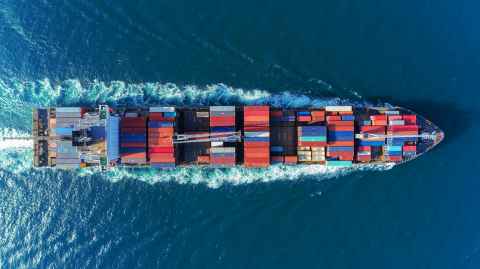Trade in the time of Covid and climate change
2 December 2021
The urgency of the climate threat and the need for greater cooperation and equity between countries is changing the conversation about global trade.

But how realistic is the idea of a trade ‘reset’ given geopolitical tensions, ongoing border closures, different domestic policies and the game changer of Covid-19?
Will old trade wars continue to loom large for the Asia Pacific region and what needs to be part of a sustainable trade agenda for a future that includes the Pacific, Indigenous people and diverse business interests?
Hosted by the Public Policy Institute at the University of Auckland, the online 2021 Auckland Trade and Economic Policy School (ATEPS) features a range of local and international experts who will address these questions over two half-days on 8 and 9 December 2021.
Institute director, Professor Jennifer Curtin, says the event will be an invaluable opportunity to hear from leading experts on crucial issues facing trade and economic policy.
“Even before the pandemic, we witnessed competing tensions connected to nationalism, populism and some scepticism around the process and impact of international trade rules and norms.”
Current questions about how wealthy economies will support global vaccine equity are intimately connected to the conversations we will be hosting about what constitutes ‘good’ trade policy and inclusive trade.
She says that as with many of our domestic policy settings, Covid-19 has exacerbated existing challenges, while bringing many of its own.
“These include supply chains, building agreement around how best to advance Indigenous, sustainable and digital trade that benefits all sectors and communities in Aotearoa, the Pacific, and the broader region.
“Current questions about how wealthy economies will support global vaccine equity are intimately connected to the conversations we will be hosting about what constitutes ‘good’ trade policy and inclusive trade," she says.
What's on the programme?
Sessions and themes will include: increasing trade between Aotearoa and Europe; supply chain challenges; developments in digital trade and sustainability; green trade policy after COP26; the future of the Regional Comprehensive Economic Partnership (RCEP); the United Nations Declaration on the Rights of Indigenous Peoples (UNDRIP); Te Tiriti and inclusive trade and a wrap up of New Zealand’s APEC hosting year.
Local speakers will include: Hon Damien O’Connor (Minister for Trade and Export Growth), Rino Tirikatene (Parliamentary Under-Secretary for Trade and Export Growth, Her Excellency Laura Clarke, OBE (British High Commissioner), Caroline Lambert, (Head of Trade and Economic Section, Delegation of the EU to New Zealand) and Vangelis Vitalis (Ministry of Foreign Affairs and Trade).
International experts on geopolitics, governance, climate change and trade will include: Associate Professor Shiro Armstrong (Australian National University), Professor Sara Davies (Griffith University) and Professor Michael Plummer (Johns Hopkins University).
Among the business and policy experts will be Stephanie Honey (Honey Consulting), Alex Larson (Air New Zealand), Harriet Shelton (Ministry of Transport, Head of Supply Chains) and Taria Tahana (principal adviser Māori for APEC 2021), as well as academic experts from the University of Auckland and around the country.
The cost is $200 for both days and $100 for one day, with a special rate for interested media.
Media contact
Julianne Evans | Media adviser
M: 027 562 5868
E: julianne.evans@auckland.ac.nz